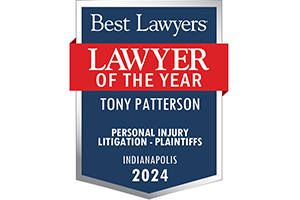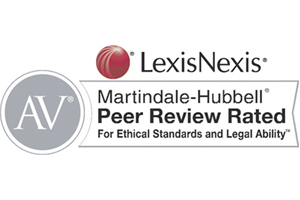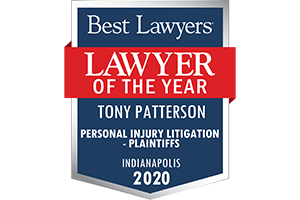Braking Ability
Indianapolis Truck Accident Attorneys
The Indiana truck accident lawyers at Parr Richey Frandsen Patterson Kruse LLP have established a reputation for excellence in personal injury law. Founded in 1899, we have provided award-winning service to countless victims injured in truck accidents and other traffic collisions. With offices conveniently located in Indianapolis and Lebanon, we are committed to offering personalized service with all the resources required to pursue your case.
Truck Braking Ability
Trucks are equipped with a variety of brake systems to slow and stop the vehicle. Commercial drivers are required to know federal and state safety regulations with regard to braking technique. With 3.2 million drivers operating 80,000-pound vehicles, effective braking is essential to traffic safety in the United States. Braking failure, improper technique, and insufficient stopping distance all increase the risk of accidental injury and death. They also violate Indiana and federal trucking laws.
Brake Failure
Vehicles come equipped with several brakes with different modes of operation. These systems and their relevant safety technologies include:
- Air brakes
- Air compressor and system pressure
- Air pressure gauges between axles
- Leak and low pressure warnings
- Parking brakes
- Use only to park, not slow down or stop
- Anti-lock brake system (ABS)
- Monitors skidding, activates wheel lock, traction control
- Lamp on instrument panel should appear when engine ignited
- Turns off if self-diagnosis reveals no malfunction
- Traction control
- Automatic electronic stability control and anti-roll systems
- Cruise control
- Prohibited on wet or slippery roads, in heavy traffic, or during driver fatigue
- Retarders
- Alternative slowing mechanism, reducing brake wear
- Include engine compression or “Jake Brake,” exhaust brake, and driveline
- retarder
Most trucks switched from drum breaks to disc brakes in the 1990s because they were less likely to “fade” or lose capacity. Full braking capacity is important when descending long grades.
Improper Braking Technique
Licensed commercial drivers must be familiar with their vehicle model and how to apply its brakes. Proper braking technique involves various requirements including:
- Holding brakes for 2 minutes to monitor air pressure
- Observing gauge for proper air system operation
- Leaving transmission in neutral when using parking brakes
- Steady brake application when ABS light activates
- Traction control when driving in mud, snow, or ice
- Holding brakes when ABS cycling on icy road
Drivers must know when to keep a foot on the brake and when to pump or modulate the brake. Releasing application too soon could cause the truck to skid, roll over, or hit another vehicle.
Stopping Distance
Knowing when to apply the correct brake is crucial to stopping on time. Drum brakes, for example, take longer than disc brakes to stop the vehicle after repeated applications. Activation of any of the other brake system requires drivers to pull over at a safe distance and inspect for malfunction. Parking brakes should never be used in emergencies and only “intelligent” cruise-control systems can warn drivers of potential rear-end collisions. Higher speeds, slippery roads, and steep grades all require a greater stopping distance to prevent traffic accidents.
Truck Braking and Negligence
Like other drivers, commercial truckers are under a legal duty to exercise reasonable care when operating their vehicles. Under Indiana law, failure to fulfill this duty may constitute negligence when it leads to injury or property damage. If you have been harmed by a truck driver’s negligent conduct due to improper braking practices or any other act, you may be entitled to compensation for damages including medical expenses, lost income, and pain and suffering. Further, liable parties may include people or entities other than the driver who are involved in operating or insuring the truck.
Recover Compensation Today
If you were injured in a truck accident, contact the Indiana personal injury attorneys at Parr Richey Frandsen Patterson Kruse LLP today. Concentrating our practice on personal injury law for over 40 years, we have helped numerous victims and families harmed by negligent truck operation. Our experience with state and federal trucking laws allows us to pursue at-fault commercial drivers and their employers, as well as liable insurance companies.











